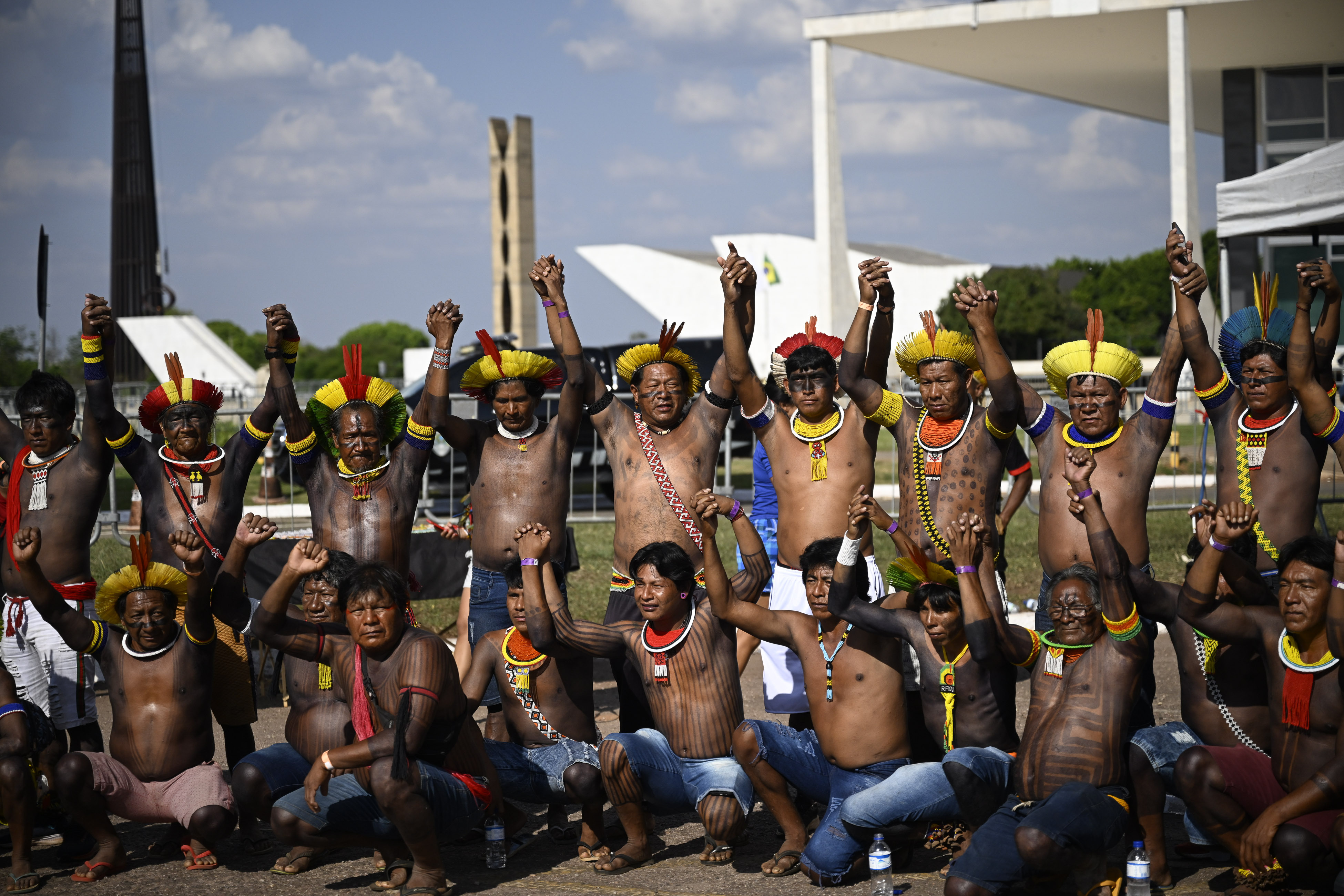The justices of Brazil’s Supreme Court voted 9-2 last week against a legal framework that would have made it impossible for Indigenous tribal leaders to reclaim traditional land and that would have eased the way for more mining, agriculture, and other extractive industries on that land.
The ruling sets a precedent for hundreds of acres of Indigenous land claims and is expected to have a widespread impact on Indigenous land rights.
The legal thesis at the heart of the case, known as marco temporal, had been moving through the courts since 2007 and was overwhelmingly endorsed in the nation’s conservative-dominated lower congressional house.
It involved a legal interpretation of Brazil’s 1988 constitution, which gives Indigenous peoples the right to claim lands they “traditionally occupied.” Since the adoption of the constitution in 1988, more than 700 Indigenous territories have been claimed. To date, 496 have been officially recognized, or demarcated, by the government, which defines property boundaries and guarantees the possession of the land and the exclusive use of its natural resources to the Indigenous peoples who live on it.
The theory would have limited tribal claims to territories they were occupying or legally disputing on the day the constitution was ratified. However, due to the Indian Statute of 1973, Brazil gave Indigenous peoples the same legal status as children, meaning they didn’t have standing to represent themselves in the state’s legal system — including in land matters.
The ruling marks the end of the yearslong fight that grew intensely under former President Jair Bolsonaro. Over the last four years, deforestation in the Amazon rose 56 percent with an estimated 13,000 square miles of land destroyed by development. During that time, Indigenous peoples lost an estimated 965 square miles of their traditional territories due to Bolsonaro’s policies.
Brazil’s right wing, agribusiness sector, and industries such as logging, mining, and farming with business interests in Indigenous lands, including the Amazon, have supported the effort. Many proponents cited economic development as a key reason to support the idea — particularly for soybean production, cattle farming, and mining.
President Luiz Inácio Lula da Silva took office in January and pledged to protect existing lands and create new territories. In recent months he has made climate and the environment central to his agenda. In August, his administration unveiled infrastructure investment programs and other initiatives that he pitched to start Brazil’s green transition.



